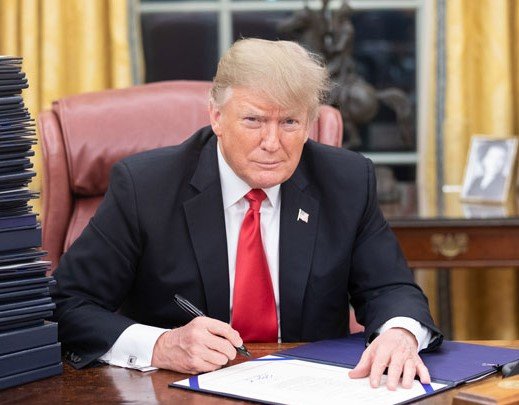White House move to exclude WSJ from Scotland visit sparks press freedom concerns
In a rare and aggressive escalation of tensions between the White House and a leading media outlet, the Trump administration has barred The Wall Street Journal from joining the president’s official press pool on his upcoming trip to Scotland. The move comes just days after the paper published an investigative exposé linking President Donald Trump more deeply to deceased financier and convicted sex offender Jeffrey Epstein — a story the White House has denounced as “fake and defamatory.”
The exclusion has rattled Washington’s press corps and drawn immediate condemnation from the White House Correspondents’ Association, which labeled the decision “deeply troubling” and “a step backward for press freedom.”
A targeted snub dressed in protocol
The decision was announced Monday evening by White House Press Secretary Karoline Leavitt, who told reporters the Journal had shown “a pattern of politically motivated disinformation, unbecoming of a publication seeking access to the President of the United States.” The Journal, part of News Corp and one of the most influential financial news organizations globally, was notably omitted from the list of 13 outlets approved to accompany Trump on his upcoming trip to Glasgow and Aberdeen.
“One sentence stood out,” said a member of the press pool, who asked not to be named for fear of reprisal. “‘Fake and defamatory conduct.’ That’s not vetting — that’s retaliation.”
Indeed, Trump aides did not cite logistical constraints or COVID-era capacity limitations, which have in the past offered the White House plausible deniability for similar exclusions. Instead, Leavitt was blunt: “There is a difference between journalism and propaganda, and The Wall Street Journal has unfortunately crossed that line.”

Journal’s reporting rekindles Epstein scandal
The White House’s fury appears to have been sparked by a July 18 front-page story by Journal investigative reporter Erin Rudd, detailing fresh allegations about Epstein’s interactions with Trump dating back to the late 1990s and early 2000s. Citing unsealed court transcripts and interviews with former Mar-a-Lago employees, the piece alleged that Epstein was a “frequent and unmonitored guest” at the Palm Beach estate, with his visits intensifying during Trump’s rise to national political prominence.
The article also questioned why a number of logs, visitor records, and security tapes from Mar-a-Lago between 2001 and 2005 remain missing, despite prior legal subpoenas — a point the White House has not addressed.
In a sharply worded editorial the following day, the Journal stood by the reporting and accused the administration of “stonewalling and spite.”
“The public deserves answers, not vendettas,” it wrote. “Banning a major news outlet from travel access is not transparency — it is censorship in plain sight.”
Press corps blindsided — and angry
Reporters from multiple networks — including CNN, NPR, and Fox News — expressed private outrage that the White House is now openly tying access to editorial tone. According to one pool journalist, there was “zero consultation or warning” that the Journal was being barred. In fact, the WSJ’s seat had already been reserved with the charter team handling the president’s trip.
“This isn’t just about the Journal,” said WHCA President Tamara Keith. “It’s about whether this White House is willing to respect the basic premise that journalism sometimes includes scrutiny.”
Political pressure builds — but GOP stays silent
While Democratic lawmakers seized on the exclusion to raise alarms about authoritarian behavior, most senior Republicans have remained conspicuously silent.
Senator Chris Murphy (D-CT) called the move “a chilling message to every reporter in America who is doing their job.” House Democratic Leader Hakeem Jeffries echoed the sentiment, adding, “If they can ban the Journal today, they can ban your local paper tomorrow.”
Notably, no senior Republican — including Senate Minority Leader John Thune or House Speaker Elise Stefanik — addressed the issue publicly as of Tuesday morning.
Meanwhile, Trump campaign aides dismissed the backlash as “beltway noise.” Campaign manager Susie Wiles told a conservative podcast Tuesday that “real Americans care more about kitchen-table issues than about who gets to sit on Air Force One.”
A single exclusion — or a new pattern?
While the White House press office insisted the exclusion applied only to this specific trip, some fear a broader precedent is being set. Under Trump’s first term, reporters from CNN, The Washington Post, and BuzzFeed were periodically denied interviews or press briefings, but rarely were they barred from official travel. This instance marks the first time in over a decade that a major U.S. newspaper has been formally cut from a presidential foreign trip due to editorial content.
“This is an escalation — no doubt,” said media historian Prof. Elaine Wu of Columbia University. “It’s one thing to label reporters the enemy. It’s another to start blacklisting institutions based on their journalism.”
One-line denials, open-ended questions
Asked if the decision could be reversed before departure, Leavitt was curt:
“No.”
She also declined to clarify whether the White House considered the Epstein story to be “entirely false” or merely “misleading,” nor did she explain whether any other outlets were under review.
For now, the administration has left the press corps — and the public — with more questions than answers:
-
Will other outlets critical of Trump face similar bans?
-
Who reviews the “approved” list of reporters for foreign travel?
-
Has any internal memo been circulated citing guidelines for access?
-
What legal recourse, if any, does a media organization have when excluded?
